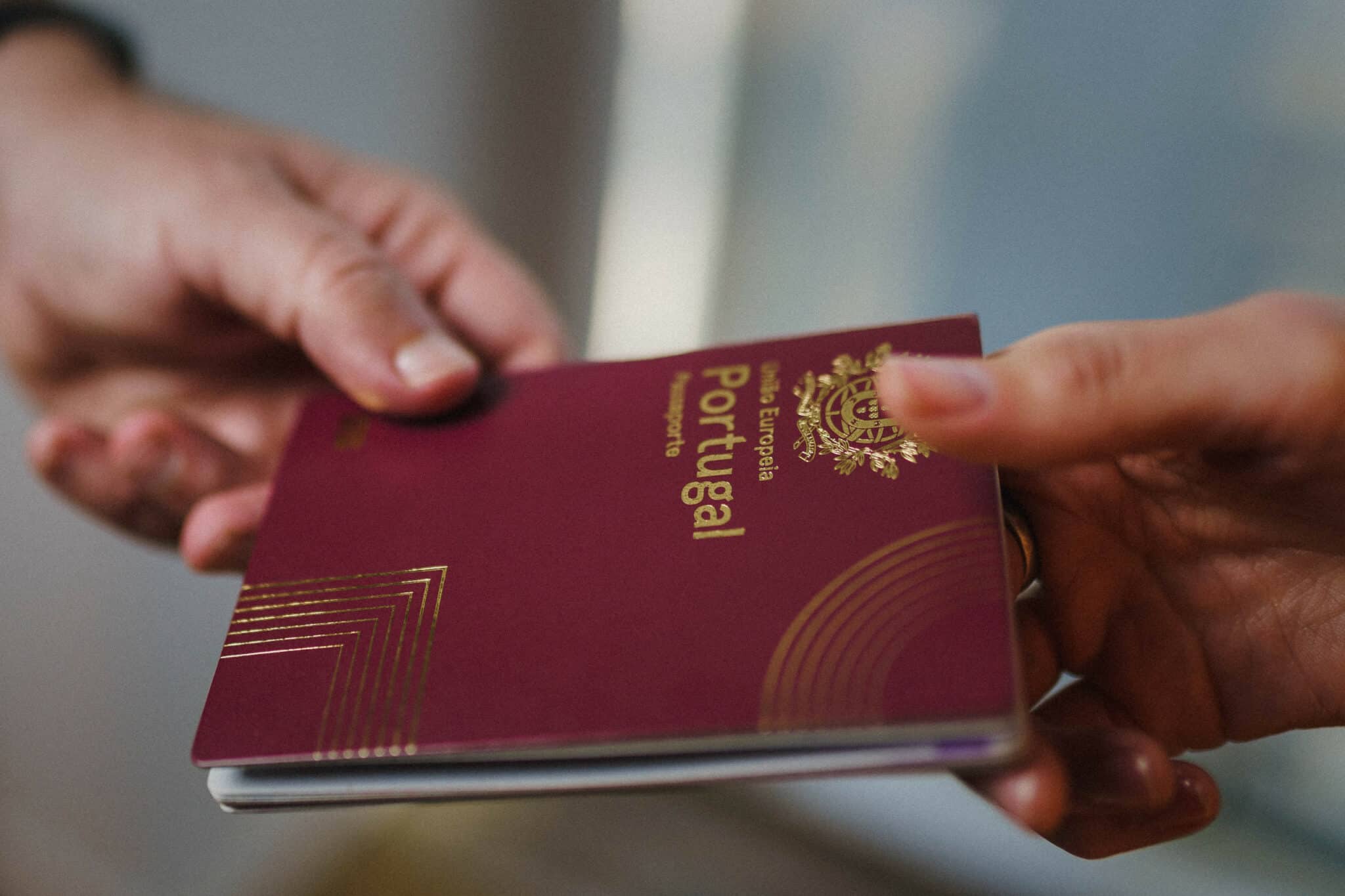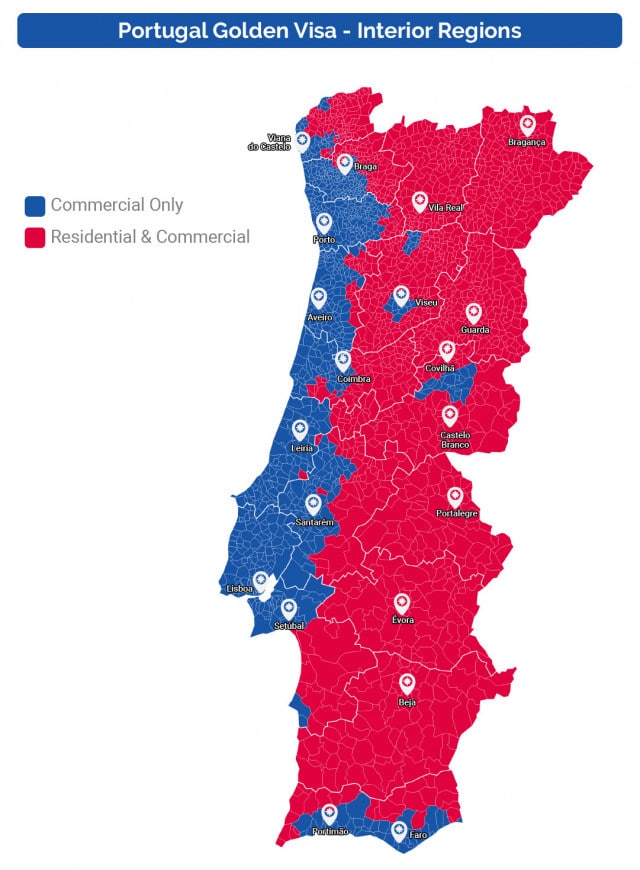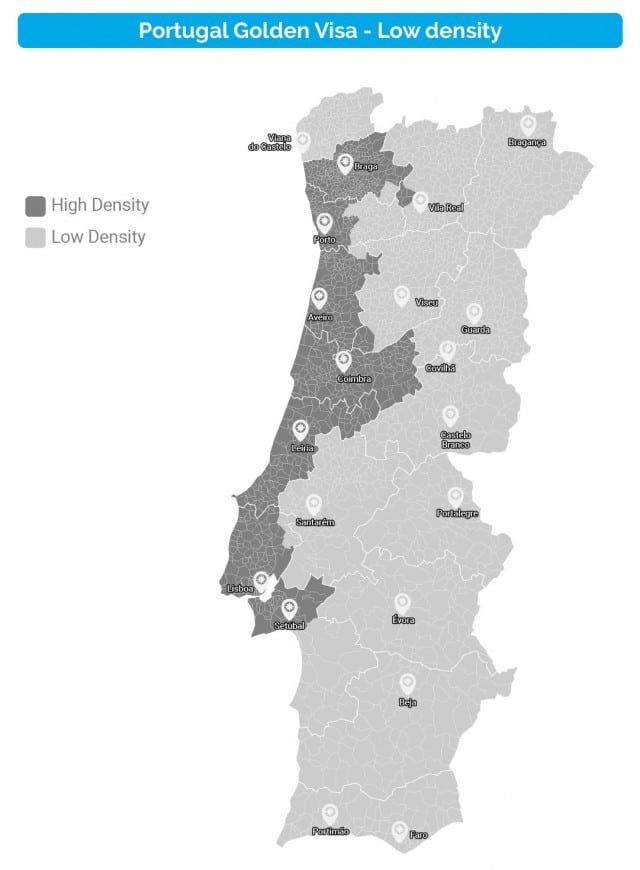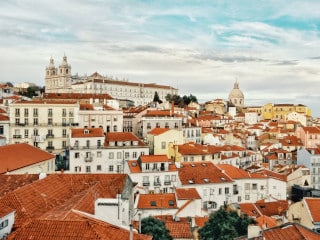UPDATE: On 16 February 2023, the Portuguese Government announced the end of the real estate investment pathway as a qualifying investment route for the Golden Visa program. You can read more about that – and follow our updates – in the article Portugal Golden Visa Ending: What Do We Know
The Portuguese Golden Visa is a popular residency program that offers foreign investors a number of benefits, including the ability to live and work in Portugal. The program has been in effect since 2012 and has been responsible for attracting thousands of foreign investors to Portugal.
However, on 1 January 2022, Portugal introduced new changes to its Golden Visa Program, which aims to boost interest in interior areas of the country along with the islands. But fear not, this article will walk you through the new changes and what areas are still available for investment. But first things first, here’s what you need to know: Portugal Golden Visa changes from 2022:
- Residential real estate investment is now limited to designated “interior areas” and on the islands of Madeira and Azores (whereas commercial real estate can continue unrestricted across the country)
- Investment in private equity and investment funds increased from €350,000 to €500,000.
- The capital transfer amount increased from €1 million to €1,5 million.
- Investment in scientific research increased from €350,000 to €500,000
- Investment into an existing Portugal-registered business has increased from €350,000 to €500,000
These are the real estate investment routes available for the Portugal Golden Visa:
- Purchase residential real estate in a designated interior area of Portugal that is worth at least €500,000 (or €350,000 if investing in a rehabilitation project). If the residential property is located in a designated “low density” area, then a 20% discount will apply.
- Purchase commercial real estate anywhere in the country that is worth at least €500,000 (or €350,000 if investing in a rehabilitation project). If the commercial property is located in a designated “low density” area, then a 20% discount will apply.
- Purchase residential and commercial real estate anywhere in the autonomous islands of Madeira and the Azores, that is worth at least €500,000 (or €350,000 if investing in a rehabilitation project). The entire islands of Madeira and the Azores are classified as high density, so a discount is not applicable when investing in the islands.
So what’s behind all these Portugal Golden visa changes? The Portuguese government is looking to evenly spread out investments to other areas of Portugal, and is looking to focus its efforts on less populated areas of Portugal.
The government also wants to increase foreign interest in urban requalification and foster investment in activities of cultural heritage with high environmental and social value.
So, what then is the difference between high, low density, and interior areas you might ask? Let’s take a look below.
Interior areas versus low-density areas
The Portuguese authorities have created a classification system, which determines what areas investors can buy real estate in, and whether a discount applies to the overall investment or not.
- Interior areas definition: specific locations where you can make a residential real estate investment to qualify for the Portugal Golden Visa. For commercial real estate, you can invest anywhere in the country and there are no location restrictions in place (as long as the property is classified as “commercial”).
- Low-density areas definition: regions that are classified as low-density are shown in light gray in the map above. The areas that are classified as high-density are shown in dark gray.
When an area is deemed “low-density” it means a 20% discount rate will apply to your investment.
Low-density regions are defined as territorial units (NUTS II) and have less than 100 inhabitants per square km or a GDP per capita that is 75% or less than the national average.
While interior areas and low-density areas are two different categories, note that it is possible for an area to be both interior and high-density. If this is the case, then you can purchase a residential property, but no discount will apply.
The Portuguese Golden Visa has been one of the most effective residency investment programs in Europe since its implementation. It’s interesting then to observe how the new Portugal Golden Visa changes will impact the pool of foreign investment.
Experts predict that there will be an increase in skilled tech workers and entrepreneurs applying for the Portugal Golden Visa as a means to live and work in Portugal.
Is the Portugal Golden Visa ending?
The Prime Minister of Portugal, António Costa, announced on 2 November 2022 that several visa schemes, including the Portugal Golden Visa, were under review. He said this at Web Summit when talking about the Digital Nomad Visa.
The announcement continues to place Portugal as having a friendly position in relation to immigration but hints that the perspective might have to be adjusted in the face of the current reality. He also highlighted the continuity of the tax benefits that attract investors to Portugal, particularly in the technological area.
However, nothing further has been announced regarding the Portugal Golden Visa. Current Golden Visa applications will not be impacted, and new applications will remain open and are protected by law.








